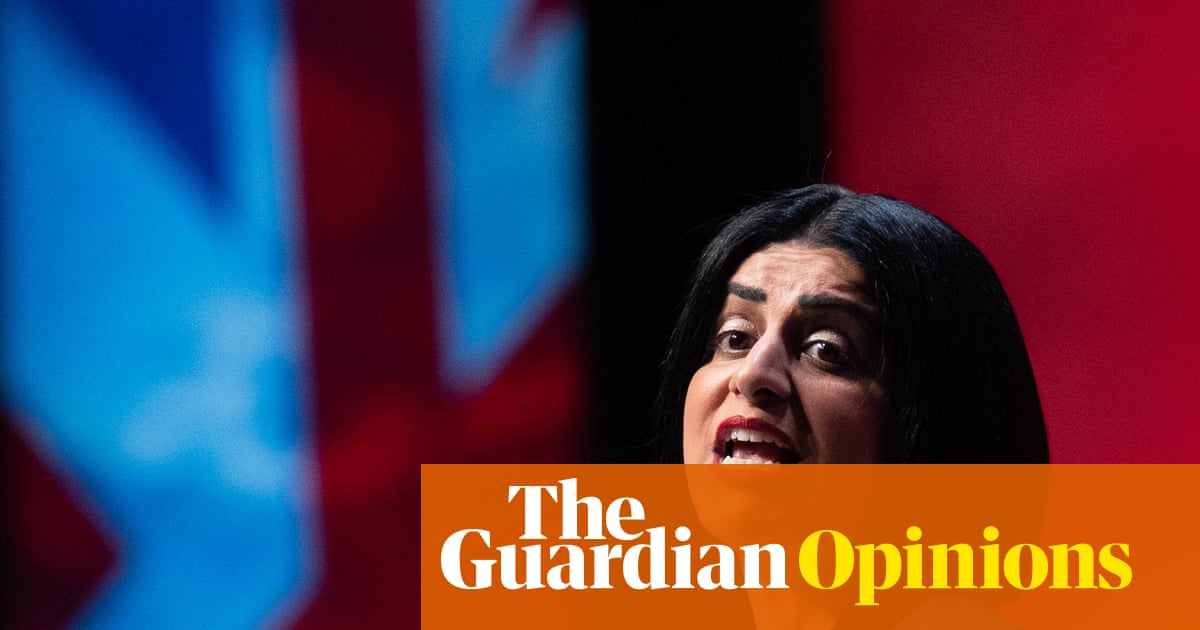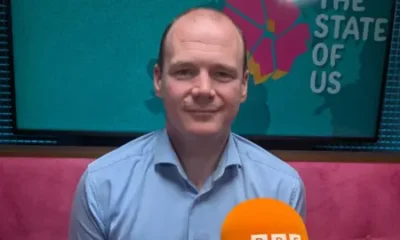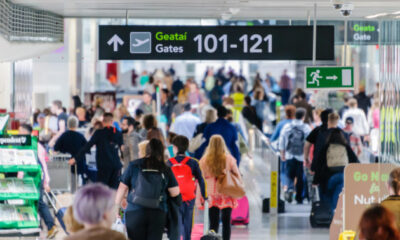Opinion
Now we know what patriotism means to Shabana Mahmood – can she harness that to unite rather than divide us? | Gaby Hinsliff
Read more on post.

In Twickenham, at the weekend, the crowd was a sea of red and white.
England’s colours were everywhere – plastered on sweatshirts and painted over faces, fluttering from flags – and the mood was unmistakably joyful. For this was of course the Women’s Rugby World Cup final, not some ominous “raise the colours” rally: a chance to remember that the St George’s cross doesn’t belong to people who daub it on roundabouts to frighten the neighbours, that there is still a kind of Englishness that inspires hope, not fear. Rugby’s Red Roses, like football’s Lionesses and Gareth Southgate’s young male England squad before them, embody a consciously inclusive form of patriotism: a message that their victories are for everyone, male or female, black or white, gay or straight.
So it was a relief to hear the new home secretary, Shabana Mahmood, articulate clearly that weekend what should always have been Labour’s line on both the English and British flags: that, as the English-born daughter of Pakistani-born parents, she sees herself in them and is “all for” their use as a symbol of unity, but not as a means to exclude and divide. “I’m a patriot, not a nationalist,” she told the Sun on Sunday. And, yes, it would have been better had Keir Starmer said something like that from the start. But better late than never, which seems to be the motto of a party conference at which Labour is finally allowing itself to call Reform UK’s new immigration policies what they are.
The outlines are fuzzy, but in Liverpool there are glimmerings of a new politics of belonging: an aspiration to be what Mahmood called an “open, tolerant, generous” country, welcoming to newcomers, while acknowledging that migrants aren’t the only ones sometimes struggling to find their feet in a multi-ethnic nation. Some British-born voters, too, evidently feel isolated and alienated from places they used to know. And it’s in the fast-changing towns where both these groups are concentrated – often living geographically close but socially segregated lives – that populist politicians, whether from Reform or pro-Gaza independents such as the one who almost cost Mahmood her seat last year, are gaining strength. Somehow, Labour’s task is to help two lonely tribes feel they belong in a new Britain.
“Pride in place”, its new multimillion pound scheme to invest in youth clubs and community pubs and projects to build up human connections, is a promising start: the aim isn’t just sprucing up tatty buildings but forging relationships, encouraging sometimes mutually suspicious neighbours to meet. It won’t be enough by itself to heal the rifts exposed in recent months – one early priority for the new communities secretary, Steve Reed, should be a bigger, more ambitious community cohesion programme – but it’s a thoughtful response. The flipside of it, however, is the much tougher message Mahmood brought to Liverpool on Monday afternoon.
She confirmed her predecessor Yvette Cooper’s plan to make migrants wait 10 years, not the current five, to seek indefinite leave to remain, before facing the extra hurdle of a “good citizen” test many native-born Britons would fail. To earn permanent residency will require not just good English, a spotless criminal record and evidence of working and paying taxes, but also a willingness to claim no benefits and undertake voluntary work. This virtuous, civic-minded definition of Britishness bears spectacularly little resemblance to how actual Britons live – only 16% of us volunteer once a month, while 10 million working-age Britons claim some benefit – but then, most native-born Britons probably couldn’t pass the existing life in the UK citizenship test without furtively Googling the history questions, either.
As so often with Labour immigration policies, it’s framed in punitive terms that imply foreign workers are really only here on sufferance. It will undoubtedly be harsh for many, particularly refugees who are currently allowed to claim universal credit, and on workers who get sick or are made redundant.
What it does do, however, is wrestle the debate back on to ground that had become dangerously neglected: integration, or the process of ensuring that people who weren’t born in Britain can belong here, which ultimately requires effort on both sides.
The biggest challenge Mahmood now faces, one I have not seen before in my lifetime, is the shocking rise of ethnonationalism. It’s the blood-and-soil politics of those who claim Rishi Sunak isn’t really English despite being born and raised here – a charge not levelled at his US-born, Brussels-raised, white-skinned predecessor, Boris Johnson – or that being Muslim is somehow fundamentally incompatible with living a properly “British” life. Both are veiled arguments not just that integration isn’t working, but that it can never work; that nothing any migrant does is enough. And, from there, it’s a dangerously short step to arguing that the only solution is to kick them out. Where belief in integration collapses, consent to immigration swiftly follows.
after newsletter promotion
So it matters very much that this is where Mahmood has drawn the line, for all that some will wish it had been drawn sooner. It’s crucial that integration can be shown to work, that the tribal human need to belong to something can be harnessed to unite rather than divide us, that the far right’s warped and self-serving nonsense about a country at war with itself be challenged, and a more honest and uplifting national story be told.
We are not an island of strangers, in the words Starmer now regrets using: just an island that needs reminding, sometimes, of who we really are.
-
Gaby Hinsliff is a Guardian columnist











